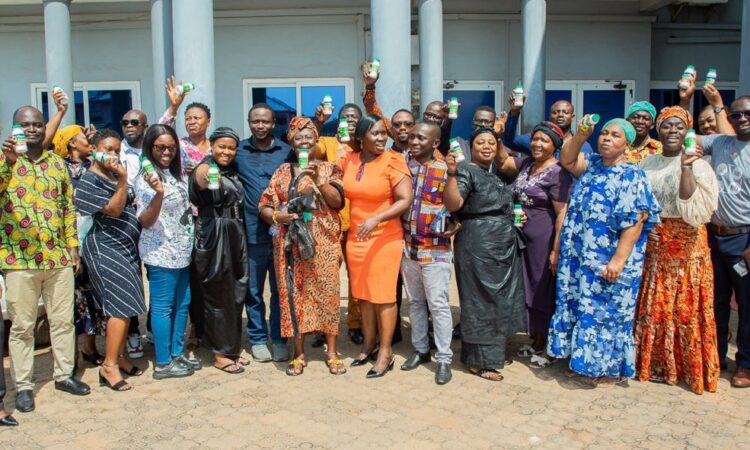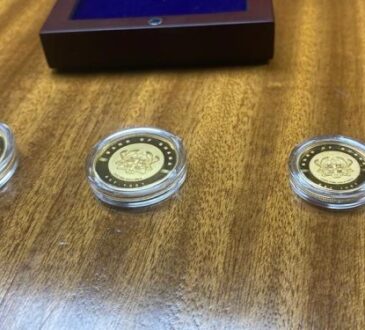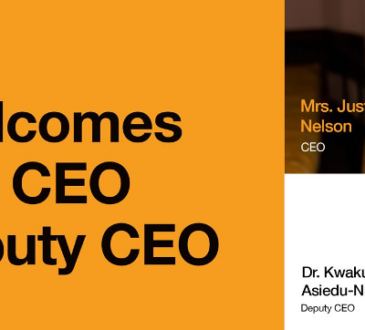
Nestled in the heart of Ghana’s Ashanti Region, Obuasi has long been synonymous with gold mining. For over a century, the town has thrived on the riches extracted from its subterranean depths.
The Obuasi mine, operated by AngloGold Ashanti, has been the lifeblood of the town for generations, providing employment, infrastructure, and economic stability. However, beneath the surface of this mining town lies the story of a vibrant community with aspirations that extend far beyond the mines.
The cyclical nature of the mining industry, coupled with fluctuating gold prices and environmental concerns, has underscored the importance of developing alternative sources of income. From small-scale enterprises to tech startups, entrepreneurs are finding innovative solutions to local challenges while seizing growth opportunities.
As part of activities to implement AngloGold Ashanti’s (AGA) 10-year Socio-Economic Development plan, the Business Acceleration and Sustainability Training (BAST) project was born. This initiative, a collaboration between AGA and the Absa Young Africa Works Project, supported by the Mastercard Foundation, aims to sustain indigenous businesses in Obuasi. This partnership encompasses four distinct projects: the Business Acceleration and Sustainability Project, the Women in e-Commerce Project, the Business Supply Chain Development Project, and the Artisans to Entrepreneurs Project. These activities are offering mentorship, training, and networking opportunities to business owners.
Carefully selected enterprises have been diagnosed by seasoned consultants, followed by customized training sessions designed to address specific issues to improve their overall capacity. To provide practical experiences from major industry players, the project takes entrepreneurs on an industry tour to Accra and Tema to witness firsthand and adopt lessons to enhance their growth. Additionally, Absa Bank, through its partnership with the Mastercard Foundation, offers qualifying businesses loans at a 10% interest rate per annum to expand and provide waged employment to young people in Obuasi.
Nana Agyeiwaa, founder and CEO of Bacnof Schools and a BAST project participant, shared, “One key thing I have learned from the training and our industry tour is to never compromise on quality, no matter what phase your business is at, because in the end, it is the quality you offer that will sell your brand.” She advised SMEs not to rush to expand but rather to focus on their goals, improve their quality, and then grow from there.
Frank Frimpong, CEO of Fnyaaf Enterprise, who diversifies general merchandise and supplies to mining companies into farming, credits the training for his ability to explore sustainable ventures such as an oil palm plantation and a catfish farm. Frank now has about 10 acres of oil palm plantation and has also begun a catfish farm and has engaged experts to help him ensure it becomes a sustainable venture. He advised SME owners to leverage the Absa-AngloGold partnership and get the needed training and capital to pivot them for growth.
The Director for SME, Agency Banking, and Partnerships at Absa Bank, Audrey Abakah advised SMEs who access loans from the bank to always honour their side of the obligation, to encourage the bank to continue to support their business growth and expansion.
“A significant portion of the loans we offer to these SMEs are unsecured which are granted based on their account performance. it’s important that the accounts they open and maintain with us are kept active and regularly funded from their sales revenue. This helps them to build a good financial historical record to attract funding from the bank.”
Kelvyn Ofori Atta, Community Development Officer at AngloGold Obuasi Mine, highlighted that the partnership with Absa Bank and the Mastercard Foundation is part of a 10-year socio-economic development plan to make the Obuasi Municipality resilient through the development of small businesses.
Over the years, Absa Bank and AngloGold Ashanti Obuasi Mine have demonstrated a deep commitment to transforming businesses to improve livelihoods. This partnership is expected to leverage their collective strengths to drive positive change in the local economy of the Obuasi operational area.







